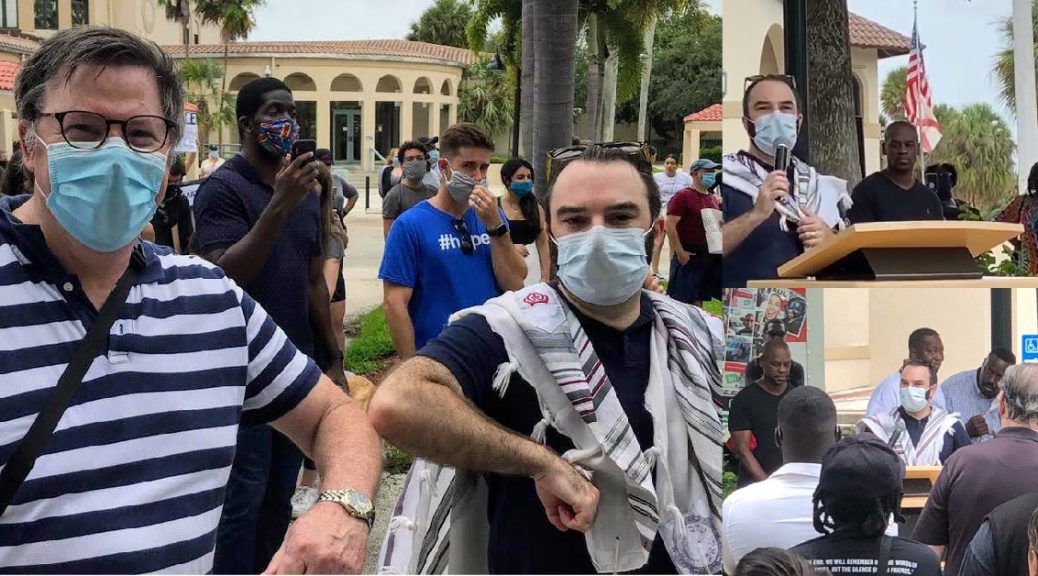by Rabbi Greg Weisman, (CAS ’05) who is a rabbi at Temple Beth El of Boca Raton, FL, where he is striving to make his city, county, state, and nation more just and fair for all.
I came to BU because of Prof. Wiesel. Like so many Jews I turned to his writings to help me understand the legacy of the Holocaust, and was inspired to find a man who turned his experience of horror into a life devoted to preventing others from suffering a similar fate. I came to BU hoping that just by being on campus with him I might catch a glimpse or a morsel of his moral wisdom. I was blessed to learn from him in class in the fall of 2004. The class met in STH, the School of Theology building, a building where another one of our University’s Nobel Laureates studied, Dr. Martin Luther King. When I reflect on that, the weight of it still hits me: I sat in a classroom with Elie Wiesel, in the same building where Martin Luther King studied.
The two men came from very different backgrounds, but the legacies they left behind have much in common. Both were gifted with extraordinary eloquence and they used their words, written and spoken, to inspire others to pursue causes of justice and peace. They reached generations of people across the globe and urged them to care for the vulnerable, the forgotten or ignored, and that each of us, regardless of our station in life, has a role to play in that work.
For the last seven years, I have served as a rabbi in Boca Raton, Florida. My journey into the rabbinate started at BU, through my work in the Jewish Studies program, which has since been renamed in Prof. Wiesel’s honor. In my work, I often reflect on my memories from that time, in particular on the lessons from Professor Wiesel’s class on “Literary Responses to Oppression.” With the rise of national awareness for the pervasive ill effects of systemic racism and race-based inequality, members of my community and I have been poring over modern-day responses to the oppression of People of Color in the US. We travelled together in the past year to Georgia and Alabama to visit the sites, memorials, and museums of the Civil Rights era. We have listened to podcasts, watched films, and read books and articles about white privilege, racist violence, and most recently, antiracism. While this learning was in light of the ongoing struggle for racial justice, it took an even more pressing turn after the murder of George Floyd. When the leadership of our local Black community organized a Peace March through Boca Raton, my congregation turned out in great numbers in support. Our membership wanted to learn more and asked us to put together a panel on race in our community with a local pastor, a community leader, and a Black member of our congregation sharing their stories.
I also heard from members of my congregation that they wanted to read together and discuss How to be an Antiracist by Ibram X. Kendi, that we might learn from him how we can combat the ills of racism in our day through our own lives and behavior. Right after I announced this book discussion group to the entire community, the news broke that Dr. Kendi would be relocating to BU. Like many alumni I felt a sense of pride, and was curious about what prompted his decision. When I heard that he chose to come to BU because of its history of the acceptance of students of Color and because it was where Dr. King pursued his doctorate, I thought back to the STH building and my time in those classrooms.
As a Jew and a rabbi, what compels me about Dr. Kendi’s thinking is that it leaves no room for standing by. The core message in his book, and of antiracism in general, is that everything we do either reinforces a system of racism that has been erected and reinforced over centuries or strives to tear that edifice down. In each action we take, we are either being racist or being antiracist. There is no neutrality when it comes to racism. As I processed his argument and began to think about it in Jewish terms, I couldn’t help but think about the acceptance speech Professor Wiesel gave in Oslo when he received the Nobel Prize for Peace, where he cautioned against neutrality: “We must take sides. Neutrality helps the oppressor, never the victim. Silence encourages the tormentor, never the tormented. Sometimes we must interfere. When human lives are endangered, when human dignity is in jeopardy, national borders and sensitivities become irrelevant. Wherever men and women are persecuted because of their race, religion, or political views, that place must – at that moment – become the center of the universe.”
The burden Dr. King, Prof. Wiesel, and Dr. Kendi lay upon us is great. “The day is short, the work is much” (Avot 2:16), Jewish tradition says. But along with that burden, these great minds of BU inspire me each and every day.


Amazing article this is! https://www.mycard-statement.com
You’ve highlighted the crucial idea from Dr. Kendi’s work that when it comes to racism, there is no neutrality – you’re either being racist or antiracist. This resonates deeply with Professor Wiesel’s caution against neutrality in the face of oppression. Both emphasize the vital role each individual plays in either perpetuating or dismantling systems of injustice.
https://www.marykayintouches.com
This blog is great e-zpassct com